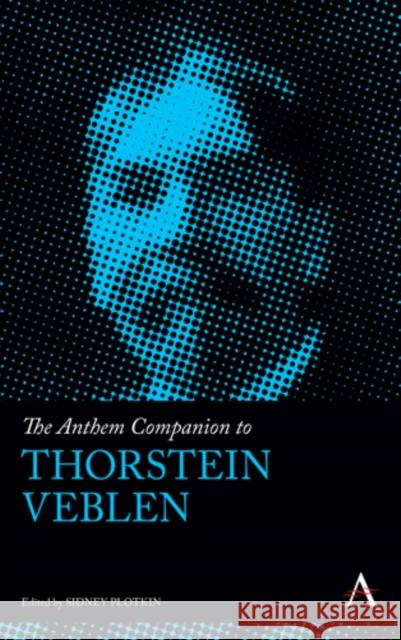The Anthem Companion to Thorstein Veblen » książka
The Anthem Companion to Thorstein Veblen
ISBN-13: 9781783082797 / Angielski / Twarda / 2017 / 286 str.
Amidst cascading global financial and political crises of the late twentieth- and early twenty-first centuries, scholars have turned for insight to the work of the radical American thinker, Thorstein Veblen. Inspired by an abundance of new research, social scientists from multiple disciplines have displayed a heightened appreciation for Veblen's importance and value for contemporary social, economic and political studies. "The Anthem Companion to Thorstein Veblen," edited with an introduction by Sidney Plotkin, is a stimulating addition to this new body of Veblen scholarship. The essays in the first part consider Veblen's method, philosophy and values. Sociologist Erkki Kilpinen peers deeply into Veblen's highly original theory of action and its implications for a sociological understanding of "the instinct of workmanship." In contrast, economist William Waller, building on contemporary work in evolutionary economics and psychology, urges a considerably more bio-psychological interpretation of Veblen's instinct theory. Intellectual historians Rick Tilman and Kohl Glau, exploring the secular foundations of Veblen's moral theory, furnish a sharp critique of recent efforts to wed Veblen with Catholic social thought. Challenging older understandings, Russell H. and Sylvia E. Bartley, careful students of Veblen's biography, offer novel insights into the impact of Veblen's education at Carlton College, while sociologist Stephan G. Mestrovic thoughtfully insists that Veblen unduly limited his affirmation of "idle curiosity" as a chief resource for learning to elite post graduate schools. Contemporary applications of Veblen's theory to studies of capitalism, social structure and politics are the focus of the contributions in the next part. Anthropologist John Kelly forcefully urges a reconsideration of Veblen's critical theory as an inspiration for both students and activists in an age of capitalism "after post-modernism and post-coloniality." Returning to Veblen's most important early work, sociologist Amhet Oncu skillfully weaves the theory of the leisure class into a rich and exciting re-interpretation of Turkey's Ottoman ruling groups. Building on Veblen's critical theory of absentee ownership and power, political scientist Sidney Plotkin analyzes Veblen's embrace of local forms of political economic self-rule, but notes Veblen's sense of the ideological ambiguity of popular resistance to centralized power. Finally, geographer Ross Mitchell applies the radical democratic potential of Veblen's concept of "the masterless man" to an understanding of both the possibilities and limits of contemporary left movements. Throughout, the essays offer fresh material for ongoing reconsiderations of Thorstein Veblen as a major theoretical resource for the contemporary social sciences.











